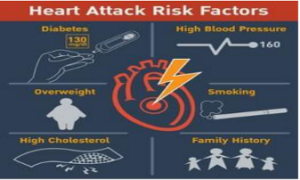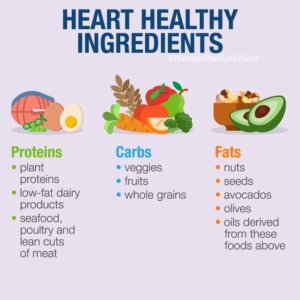Heart Disease
Heart disease is a major health issue that affects people all over the world. According to the World Health Organization (WHO), heart disease is the leading cause of death globally, and it affects around 1.5 billion people. The term “heart disease” refers to a range of conditions that affect the heart, including coronary artery disease, heart failure, and arrhythmias. Understanding the causes of heart disease and the risk factors associated with it is essential for protecting heart health and preventing heart disease.
One of the main causes of heart disease is atherosclerosis, a condition in which the arteries become narrowed and hardened due to the buildup of plaque. Plaque is made up of cholesterol, fat, calcium, and other substances, and it can accumulate in the arteries over time, reducing blood flow to the heart. This can lead to chest pain (angina), heart attack, or stroke. High blood pressure, which is also known as hypertension, is another significant risk factor for heart disease. When blood pressure is too high, it can cause damage to the arteries and increase the risk of heart attack or stroke.

Risks
In addition to atherosclerosis and high blood pressure, there are several other behavioral risk factors for heart disease. These include smoking, obesity, diabetes, and a family history of heart disease. Smoking is particularly harmful to heart health because it can damage the arteries and increase the risk of blood clots (Manfrini & Bugiardini, 2022). Obesity and diabetes are also linked to heart disease because they can lead to atherosclerosis and other complications. A family history of heart disease can increase the risk of developing the condition, as some forms of heart disease are inherited. It’s important to note that heart disease can affect people of all ages, genders, and backgrounds. However, certain groups of people are more likely to develop heart disease than others. For example, men are generally at higher risk than women, and people of African American, Hispanic, or Native American descent are more likely to develop heart disease than people of other races or ethnicities. Age is also a significant risk factor for heart disease, with the risk increasing as people get older.
 Funch and Whelton’s research shows that the most common causes of heart attacks are high blood pressure, hardening of the arteries, and problems with the valves (2020). These risk factors are also linked to obesity, diabetes, and smoking, all of which are long-term illnesses. Heart disease can also be caused by bad choices in life, like eating a lot of saturated fats and not enough fruits and vegetables.
Funch and Whelton’s research shows that the most common causes of heart attacks are high blood pressure, hardening of the arteries, and problems with the valves (2020). These risk factors are also linked to obesity, diabetes, and smoking, all of which are long-term illnesses. Heart disease can also be caused by bad choices in life, like eating a lot of saturated fats and not enough fruits and vegetables.


Heart Healthy
While there are many risk factors for heart disease, there are also many things that people can do to protect their heart health. One of the most important steps is to adopt a healthy lifestyle that includes a balanced diet, regular exercise, and avoiding smoking. A healthy diet should include plenty of fruits, vegetables, whole grains, lean proteins, and healthy fats, while limiting saturated and trans fats, salt, and added sugars. Regular exercise is also essential for heart health, as it can help lower blood pressure, reduce the risk of obesity and diabetes, and improve cardiovascular function. In addition to these lifestyle changes, it’s also important to manage any existing health conditions that can increase the risk of heart disease. This may involve taking medications to control blood pressure, cholesterol, or blood sugar levels, as well as getting regular check-ups with a doctor to monitor heart health. For people who have already been diagnosed with heart disease, there are many treatments available, including medications, lifestyle changes, and surgical procedures.
References
Funch, D., & Whelton, S. P. (2020). Risk factors for coronary heart disease. In StatPearls. StatPearls Publishing.
This comprehensive review article provides an in-depth overview of the risk factors associated with coronary heart disease, including hypertension, atherosclerosis, and valvular illness.
Manfrini, O., & Bugiardini, R. (2022). Behavioral risk factors and prevention of coronary artery disease. Current Cardiology Reports, 24(2), 1-9.
This article explores the role of behavioral risk factors, such as poor diet and lack of exercise, in the development of coronary artery disease. The authors emphasize the importance of lifestyle changes in preventing heart disease.
World Health Organization. (2019). Cardiovascular diseases (CVDs). Retrieved from https://www.who.int/news-room/fact-sheets/detail/cardiovascular-diseases-(cvds)
This WHO fact sheet provides an overview of the global impact of cardiovascular diseases, including heart disease. It also highlights the importance of prevention through lifestyle changes and management of chronic conditions.
